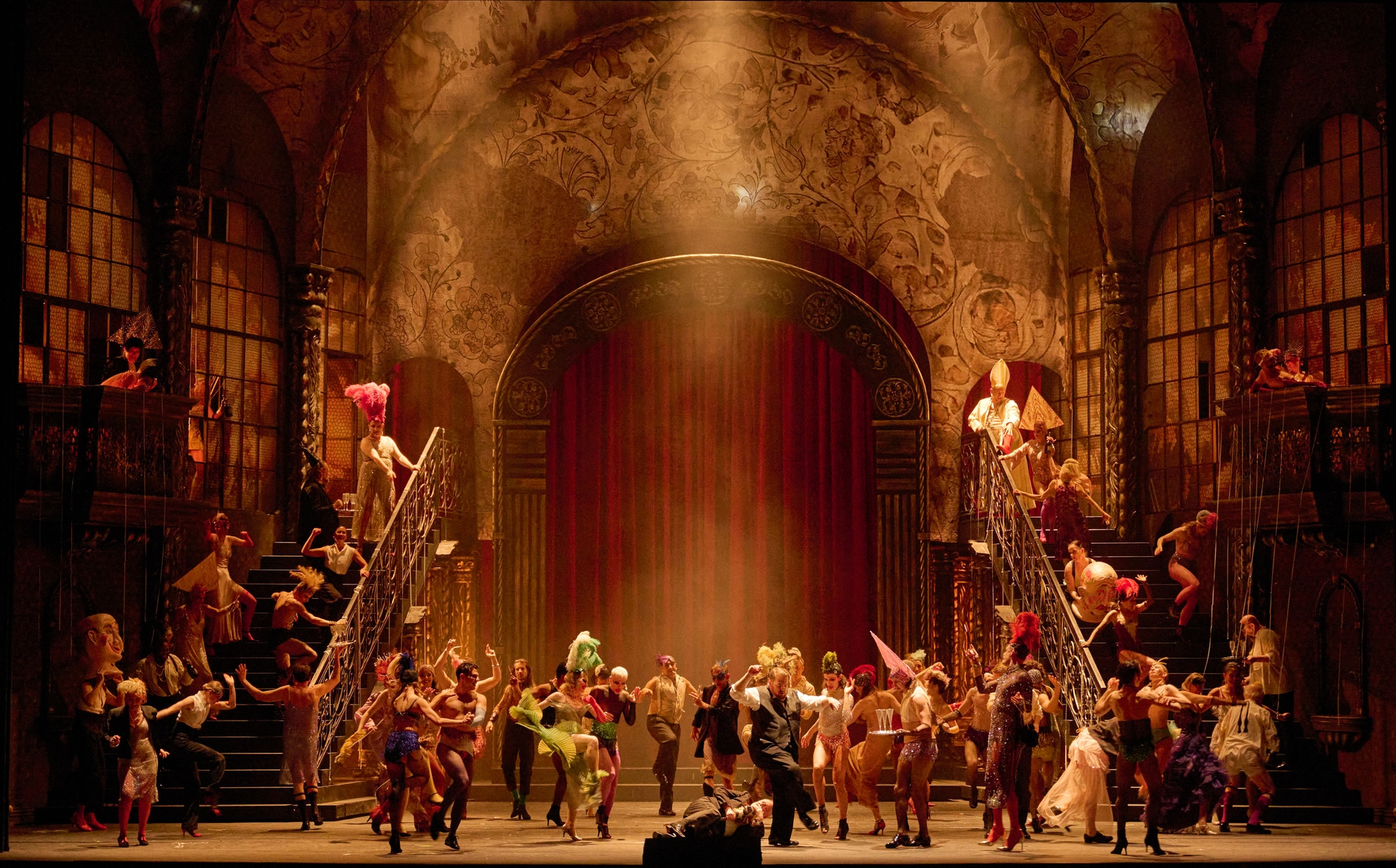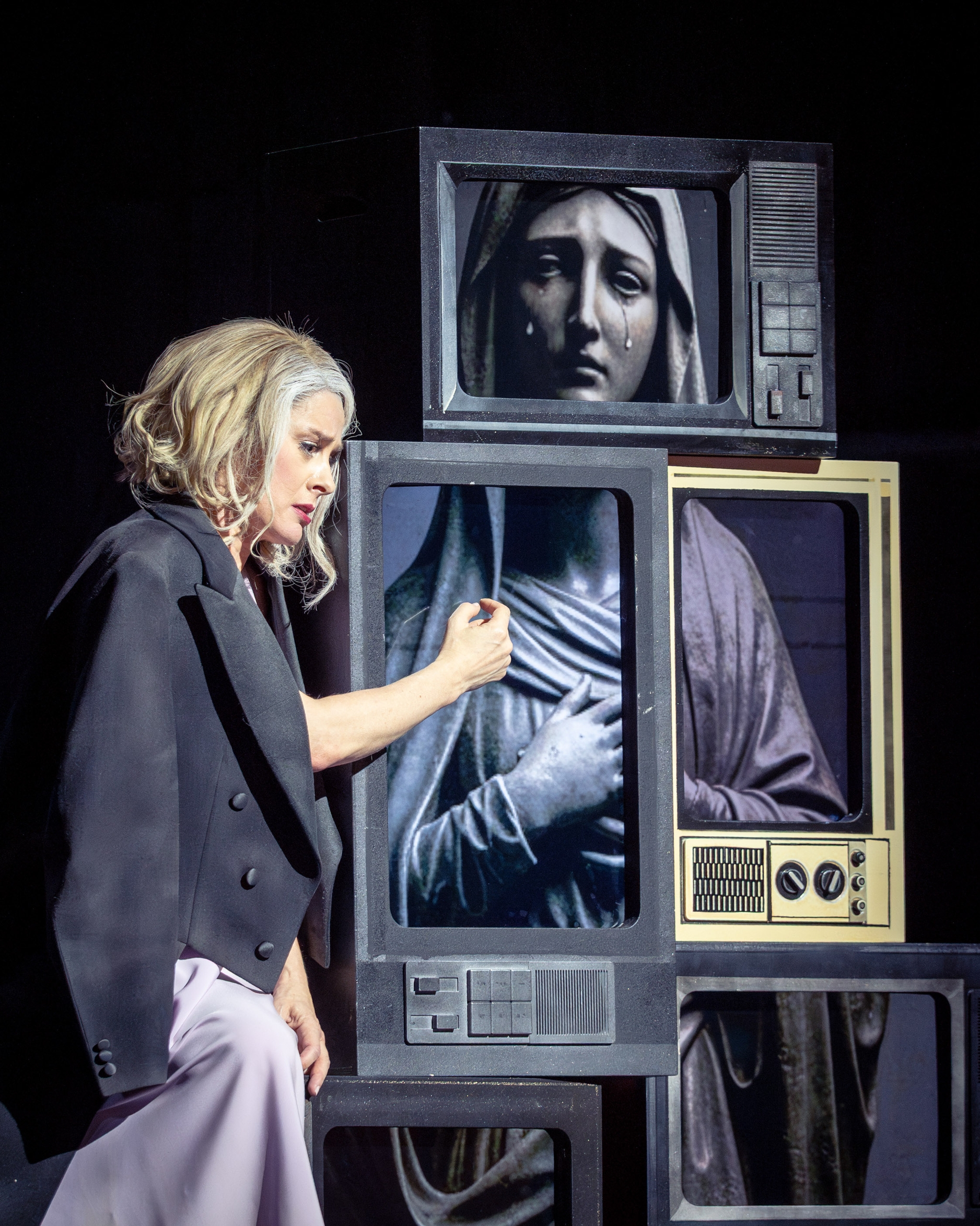Crash course »Tannhäuser«
News |
When dealing with Tannhäuser, one must first ask the question of the version: For Richard Wagner revised the work in several stages over decades without finally reaching a satisfactory conclusion. His wife Cosima, for example, recorded his much-quoted sigh »I still owe the world a Tannhäuser « in the evening of his life, a clear indication that at least one more revision of the opera would probably have followed.
Three versions
In any case, there are three important versions: The original Tannhäuser, first performed in Dresden in 1845, then the revised and expanded version for Paris, which presents us with a musically much more refined and complex Venusberg scene, including an extensive bacchanal, and finally another version, slightly altered for Vienna, the so-called "Vienna version", which we are currently performing at the State Opera.
That's where Wagner came from
Wagner wrote his Tannhäuser after The Flying Dutchman and before Lohengrin; for me, it is still an early work that comes entirely from the tradition of German opera. I hear strong musical influences from Albert Lortzing, for example, but also from Felix Mendelssohn Bartholdy - and it is important to me that the interpreter keeps these musical points of reference in mind in order to get the right musical texture for Tannhäuser. It is of course obvious that Wagner does not remain in the traditional play opera, as individual moments in his Tannhäuser repeatedly refer to his later work, to the Ring des Nibelungen or Tristan.
Another question that arises for today's interpreters is the sound world of the 19th century, in which Wagner was at home. He would undoubtedly prefer today's modern instruments, but he only had the standard instruments of his time at his disposal. In order to understand how Wagner meant his music, how articulation, balance and tempo are to be understood and how these aspects relate to each other, it is essential to consider the instruments of the time in today's renditions.
The overture

Now we come to the actual Tannhäuser music. It begins with an overture - not a "prelude" as in the subsequent Lohengrin! -but a very classical overture that introduces important motifs from the opera. Right at the beginning, an incredibly familiar melody is heard, the music of the pilgrims' chorus, not sung in this case, of course, but only orchestrated; the theatrical moment of the journey is nevertheless traced: At first, the music is heard as if from a distance, then coming closer, swelling in volume, passing by - and then becoming quieter again.
The realm of Venus

This is followed thematically by the "other" world, the realm of Venus, in which sensual pleasure is indulged. Wagner creates a musical, thematic and dramaturgical contrast in the juxtaposition of these spheres - here the pilgrims, there the world of Venus.
Suddenly, very bright colors appear in the orchestra, it glitters and flickers, the sound literally tingles, along with complex harmonies. The actual action begins in the Venusberg, where we first encounter an extensive bacchanal that Wagner wrote for the Paris Opera because the tradition there demanded a grand ballet. Tannhäuser is also here in the realm of Venus, but he is beginning to get bored.
No more orgy!
The world of Venus is simply too much for him and he wants to return to the real world, where things are perhaps less sensual, but more human. He desires the green of nature, freedom, even pain. In three verses, which always begin with praise to Venus, he formulates his wish to return to humanity - in between sings Venus, who wants to hold him and becomes increasingly indignant with him.
Finally, she lets him go, albeit with a warning, almost a curse: "What you ask for, that is your fate! Flee to the cold people." This lengthy dialog with Venus is particularly vocally challenging for the tenor due to its intensity. In itself, the Venuswelt music of the later versions is immensely more complex and harmonically complicated than that of the early Dresden version; Wagner, now much more experienced, provided more color, shading, sophistication and opulence. I would like to point out one more detail: A clearly audible harp accompanies Tannhäuser's three-part farewell song, so there is a reference to his vocation as a singer, as a minstrel.
In the human world
After this scene, there is a major musical break. Tannhäuser lands in the human world, which we first experience through a simple shepherd's song that can be sung by either a female or a boy's voice. In contrast to the heated world of Venus, this is a very clear, short piece of music. We also hear a pilgrims' choir, then Landgrave Hermann's hunting party approaches - musically characterized by hunting horns. These are Tannhäuser's former acquaintances who invite him back into their circle. At first he is reluctant, until the famous minstrel Wolfram von Eschenbach mentions the name "Elisabeth": she and Tannhäuser were or are bound by love - so he accompanies the group.
The next scene takes us to Wartburg Castle. It, too, is musically very different from the Venus world; the tonal language is now more down-to-earth, more straightforward, harmonically simpler and clearer in its phrasing. However, I personally don't think that Wagner deliberately wanted to write more simply here: What we hear at the Wartburg was Wagner's style in the mid-1840s. The world of Venus, on the other hand, was deliberately intended to be more complex, even in the original version and even more so in the Paris and Vienna versions.
17 - and Elisabeth already?
A musically pivotal moment at Wartburg Castle is the beginning of the second act, Elisabeth's so-called "hall aria", in which she recalls Tannhäuser. The fact that Wagner's niece, aged just 17, sang the role of Elisabeth at the premiere makes some people wonder today. How was that possible? A 17-year-old? Isn't that too early? Was she even able to assert herself against the orchestra? Let me remind you once again of the orchestral situation at the time of the premiere: strings with gut strings, the instruments themselves sounding quieter than today - it was a different sound.
In addition, the "hall aria", like Elisabeth's second great aria, the prayer in the third act, is not too lavish in terms of orchestral accompaniment. It is therefore easy to imagine that even a very young singer could be heard well. It is clear that larger and more mature voices are needed today, given the modern and more powerful sounding instruments!
What is love?
At Wartburg Castle, we end up at a singing competition organized by Landgrave Hermann on the theme of love. The winner is to receive the hand of his niece Elisabeth. This competition is a great way to experience the musically well-drawn, different characters of the competing singers. We have the lyrical Wolfram, the poetic and reserved Walther von der Vogelweide and the violent Biterolf. Time and again, however, Tannhäuser interrupts the others. For him, they are all orphans when it comes to love and without any real knowledge. Only he, he believes, understands what love really means thanks to his love goddess past.
The Venus scandal
Finally, Tannhäuser bursts out and sings about Venus. A scandal, an outrage! People are horrified: "He has shared the lust of hell, he has dwelt in the Venusberg!" - Disgust, death threats and anger follow, but Elisabeth stands up for him even though he has broken her heart. In the end, Tannhäuser has to go to Rome to ask the Pope for forgiveness. Wagner culminates this in a large ensemble in which the knights, Elisabeth, Hermann, Tannhäuser and the pilgrims traveling to Rome create a powerful (and very difficult) act finale.
Where is Tannhäuser?
In the third act, the penitents return from Rome and we hear the famous pilgrims' chorus, which we first heard at the very beginning of the opera, in the overture. But Tannhäuser is not among them. Elisabeth despairs, turns to the Virgin Mary - here the prayer of Elisabeth mentioned earlier - and wants to sacrifice herself for Tannhäuser.
This is followed by one of the most famous and touching moments of this work, Wolfram's "O du mein holder Abendstern": this is a musical solitaire, a song-like number that is often sung outside of Tannhäuser performances thanks to its simplicity and enchanting beauty. Once again, Wagner draws a character with the help of the music: Wolfram's song tone corresponds to his personality, the song characterizes his nature, he is completely different from the impulsive Tannhäuser, the lyricism defines him.
Back from Rome at last

Now the title character finally returns from his pilgrimage: full of disappointment, as he has not been forgiven, as we learn from Tannhäuser's "Rome Tale". And this despite the fact that he had endured the most difficult trials and hardships. The consequence for him, who always goes all out, is quite clear - he wants to return to Venus.
The sounds of Venus are already flickering again, the goddess of love is already appearing, when the horrified Wolfram reminds him of Elisabeth, who sacrificed herself for him. The mention of her name brings about Tannhäuser's final turnaround and his renunciation of Venus; and once again the pilgrims are heard, announcing the miracle of his salvation. Before the opera closes, the melody of the pilgrims' chorus is heard one last time, the melody with which the grandiose work - some four and a half hours earlier - began.


